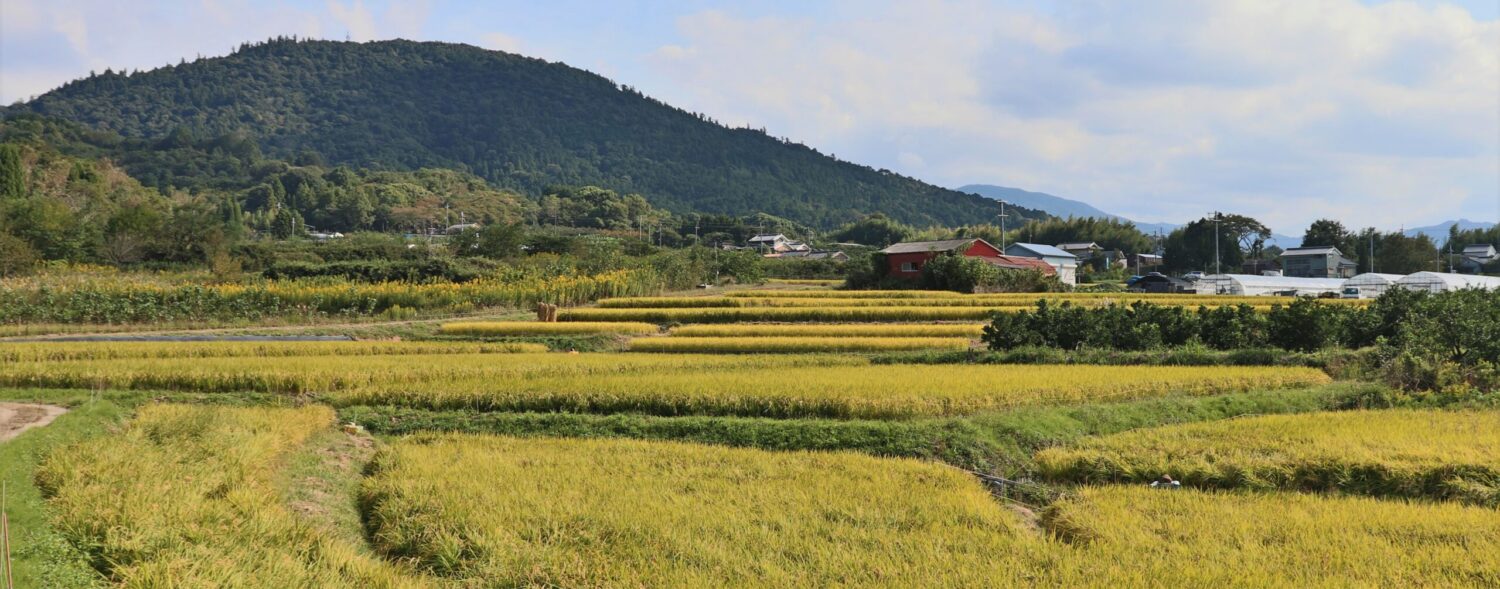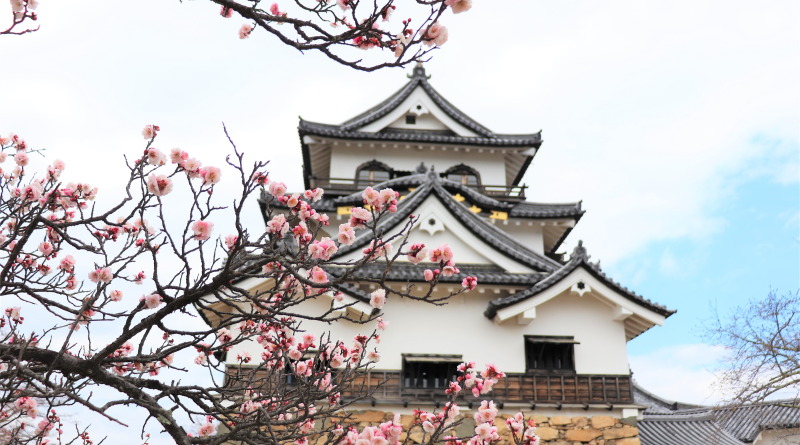
Hikone Castle, A Japanese National Treasure
While there are many castles in Japan, only 5 of them are national treasures. In Kansai, Himeji Castle is of course national treasure, but so is Hikone Castle too. Though Hikone Castle is not as big as Himeji, it is still a popular destination for Japanese people, as it is well preserved.
Hikone Castle
Getting to Hikone Castle
The closest station to Hikone Castle is HIkone Station. It is only one station south of Shinkansen Station, Maibara.
From Hikone Station, it is only a 10 minute walk from the station. The castle is a bit small however, so you can’t see it from the station.
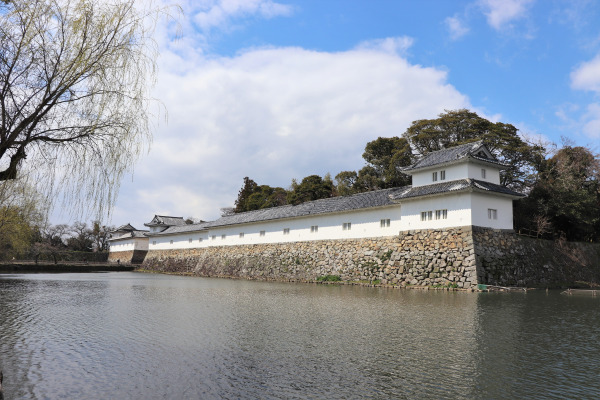
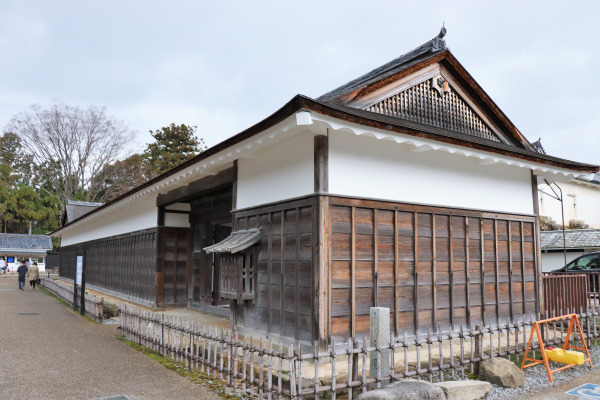
What is currently the Castle Museum of History was once a small palace for the castle lord.
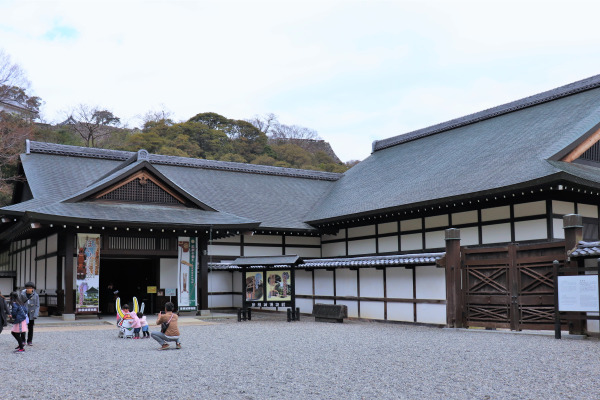
Castle Grounds
The first lord of Hikone Castle is Ii Naomasa, one of the “Four Guardians” of Tokugawa Ieyasu. Naomasa was a major player in the Seikigahara War. For his efforts, Tokugawa rewarded him with Sawayama Castle, the home of one of Tokugawa’s biggest enemies, Ishida Mitsunari.
However, it was around this time that Tokugawa began to perceive Toyotomi Hideyori, the son of the recently deceased Hideyoshi, as a threat. In order to provide additional assistance if his lord so needed, Ii Naomasa quickly ordered the construction of Hikone Castle. Since it was built in a hurry, pieces from other castles near Hikone such as Otsu Castle and Nagahama Castle were used to build Hikone Castle.
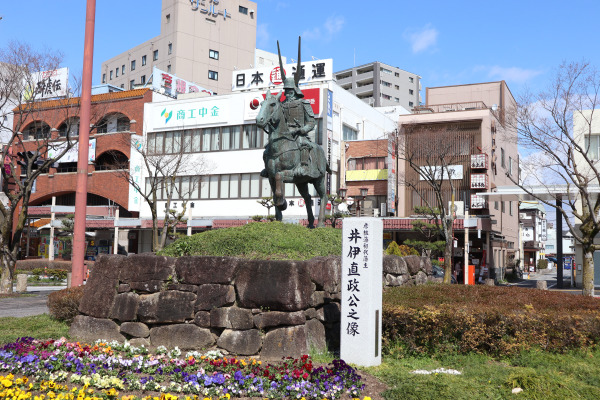
Unfortunately, Ii Naomasa passed away from an injury he got during the Sekigahara War before the completion of Hikone Castle, which took over 20 years due to the Siege of Osaka.
Since Ii Naomasa was such an important person in Tokugawa government, the Ii clan was appointed to a high-rank position called tairo [大老] (almost like prime minister) many times throughout the Tokugawa Shogunate. The Ii clan also governed Hikone for 14 generations.
The main keep is just up a couple of flights of stairs.
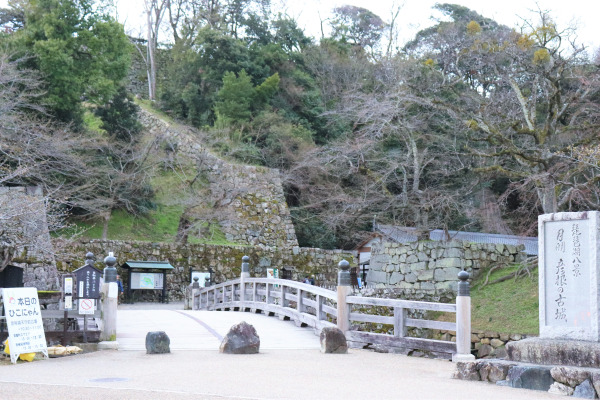
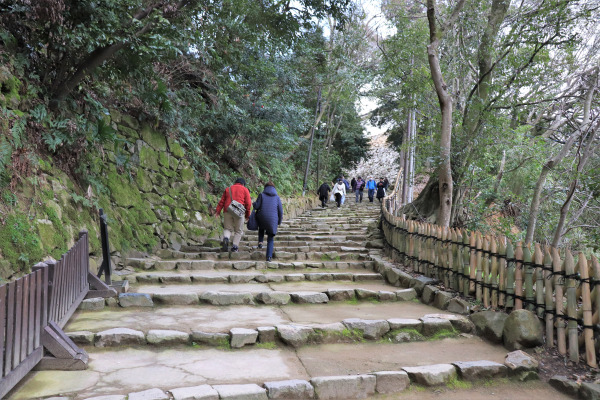
Once you cross the bridge, you will see the main keep, but do pay attention to the bridge too!
his bridge is an essential part of the very symbol of Hikone Castle, which when viewed from a distance is said to resemble a set of scales. The bridge also served a practical purpose as it allowed soldiers in the turrets to attack intruders from both sides. Also, as a last-ditch effort, the soldiers could burn the bridge entirely, to prevent anyone from entering. This type of entrance can only be in Hikone Castle.
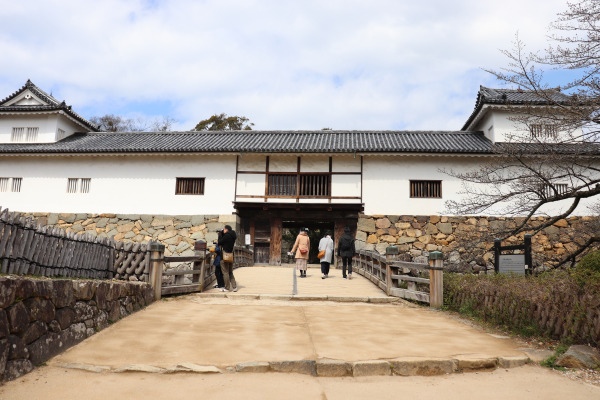
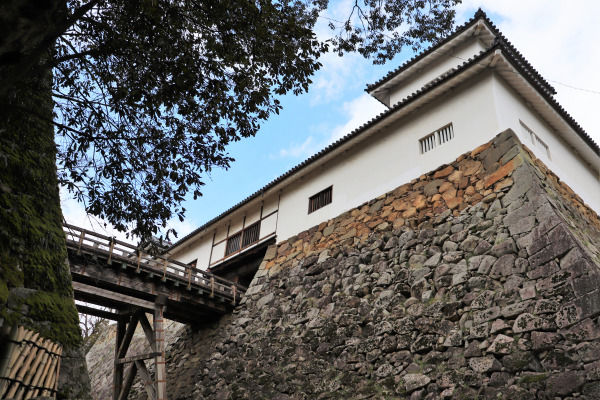
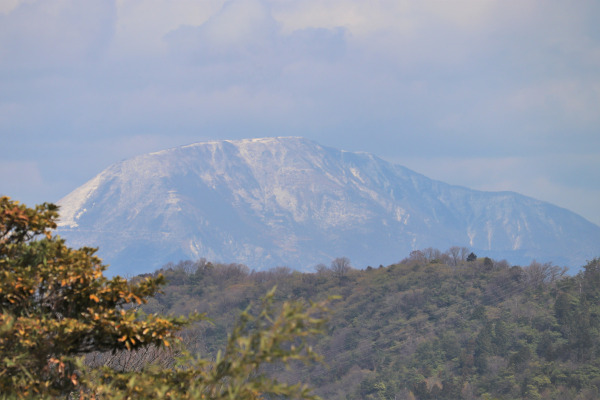
After the last gate, Taiko-mon gate, it is the main keep!
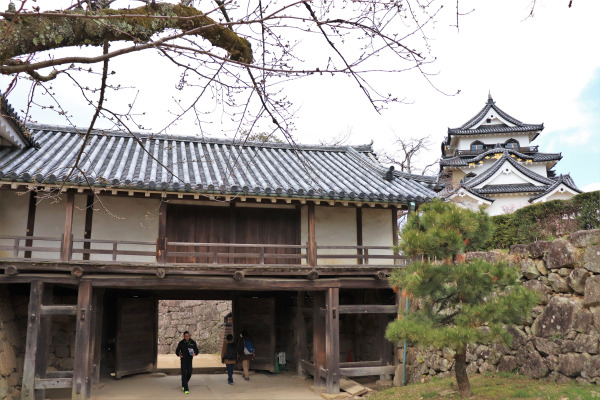
Main Keep
The main keep is rather small. However, this castle is quite popular among Japanese people as it is one of the very few castles that is a Japanese National Treasure. The main keep is relocated from Oatsu Castle in Shiga and has been intact since 1606.
The roof of the main keep is quite gorgeous. Also, the window above the second floor is a bell-shaped window, something commonly seen in zen temples.
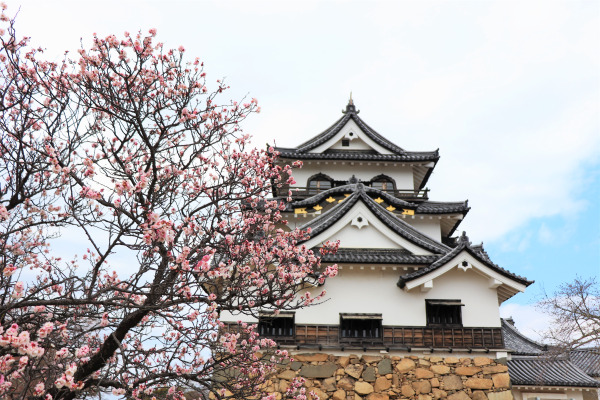
As an original castle, some of the stairs are quite steep, and it was more like a ladder. Due to its size, only so many people can enter the castle at a time, so expect to wait, especially on weekends or holidays.
However, this is not very bad. People used to wait more than 2 hours to get into the castle when Hikonyan was really popular.
Hikonyan
For some people, the main purpose of coming to Hikone Castle is not to see the castle itself, but rather the kitty mascot, Hikonyan. Hikonyan is one of the very first yurukyara (cute mascots) in Japan.
Around the time he debuted, he was so popular that it took several hours just to enter the castle. Even now he has many very loyal fans and is especially popular with young children.
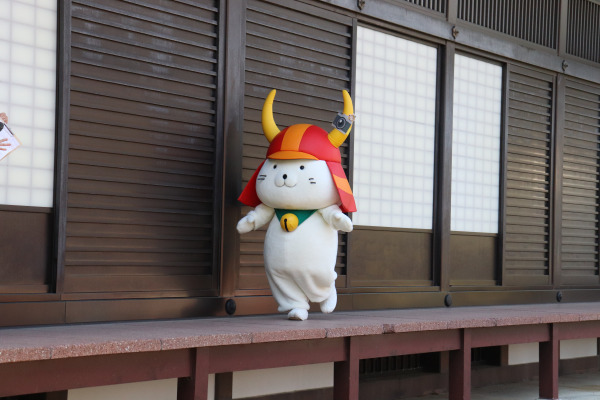
Hikonyan appears three times a day. Also, since he is one of the most popular mascots in Japan, he travels all over the country and sometimes even abroad! Despite all this traveling, he still makes appearances almost daily in and around Hikone Castle. Be sure to check the board where he plans to appear and on what day.
Hikone Castle
| Address |
|
| Website |
|
| Getting To |
|
| Hours |
|
| Admission |
|
| Note |
|
